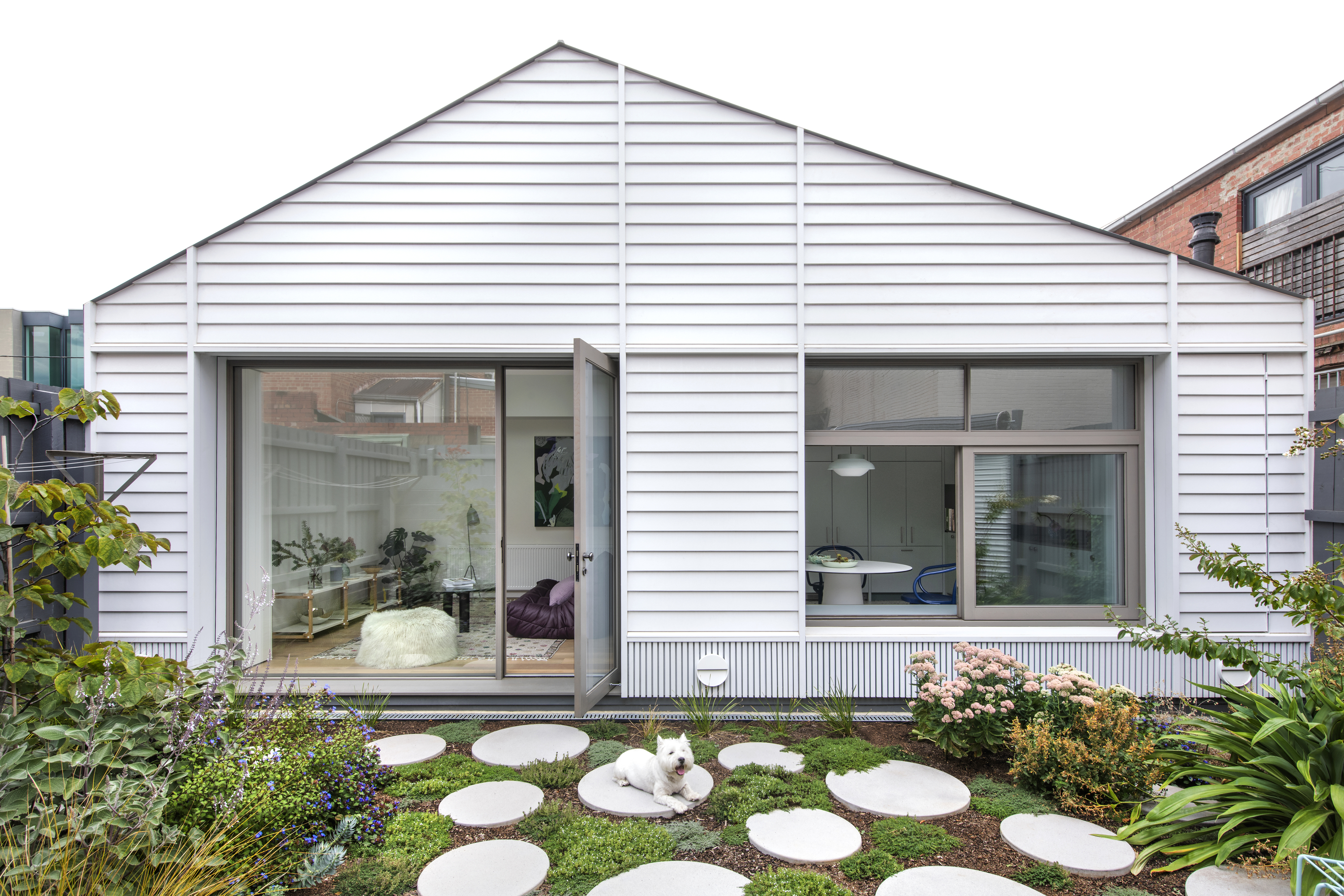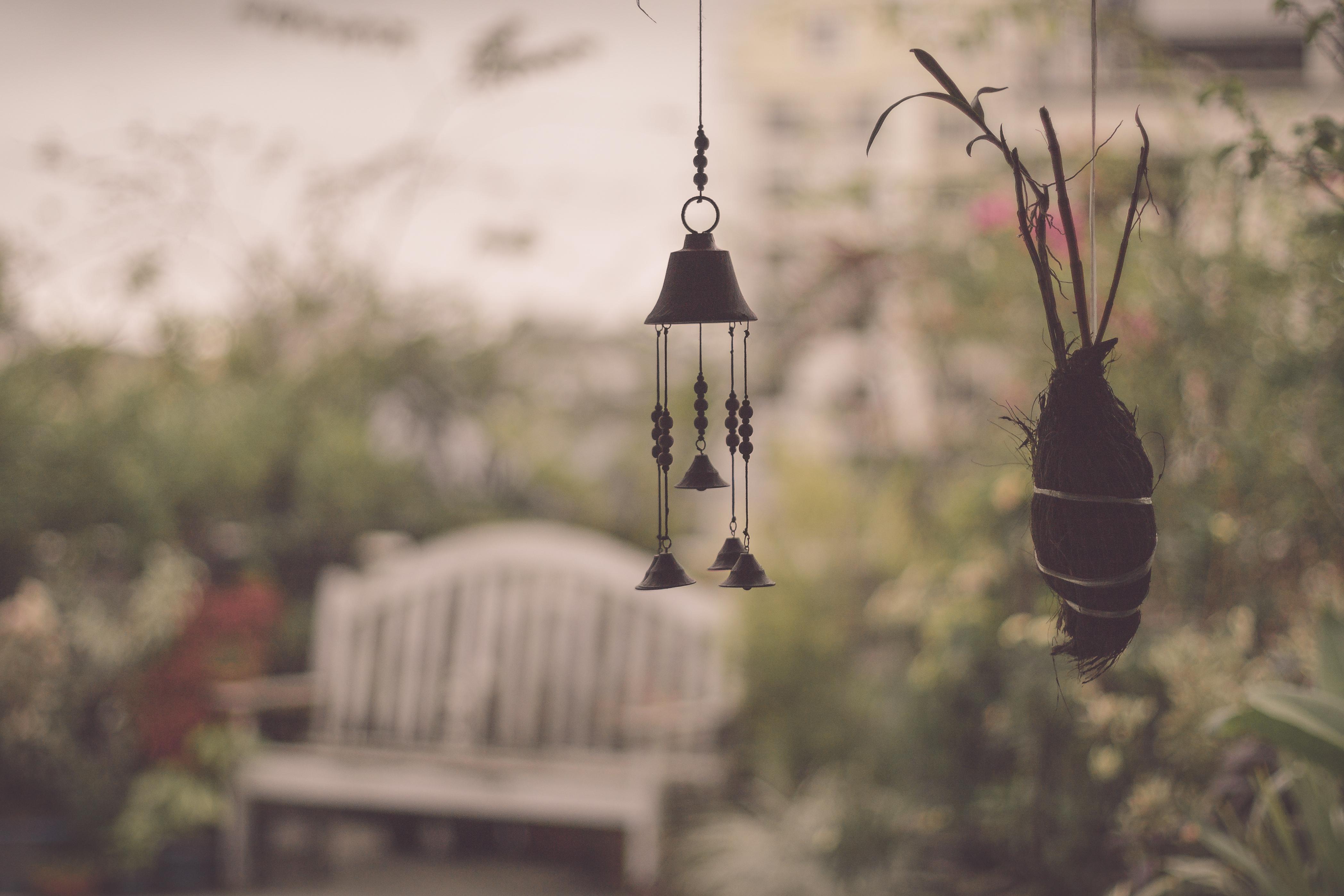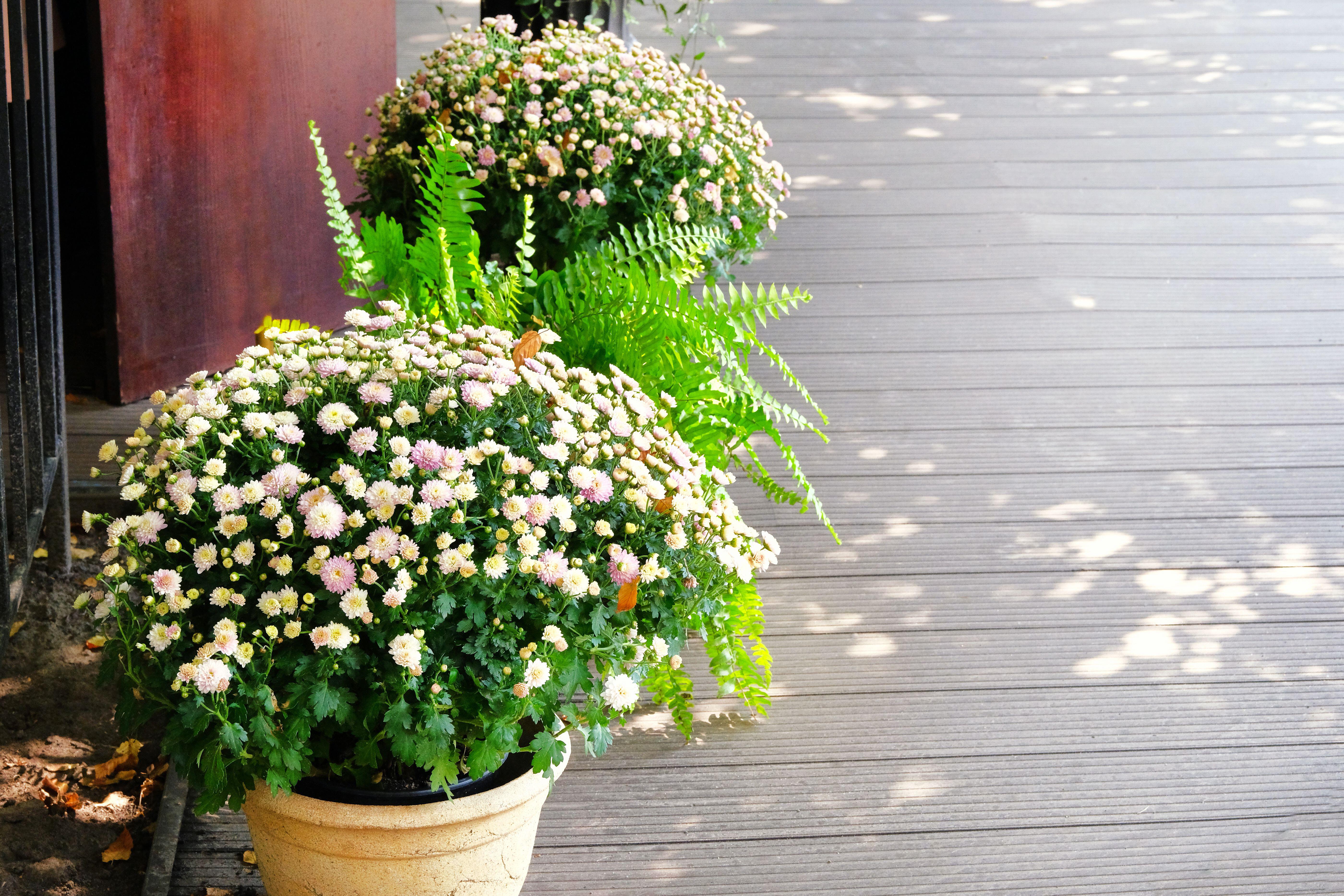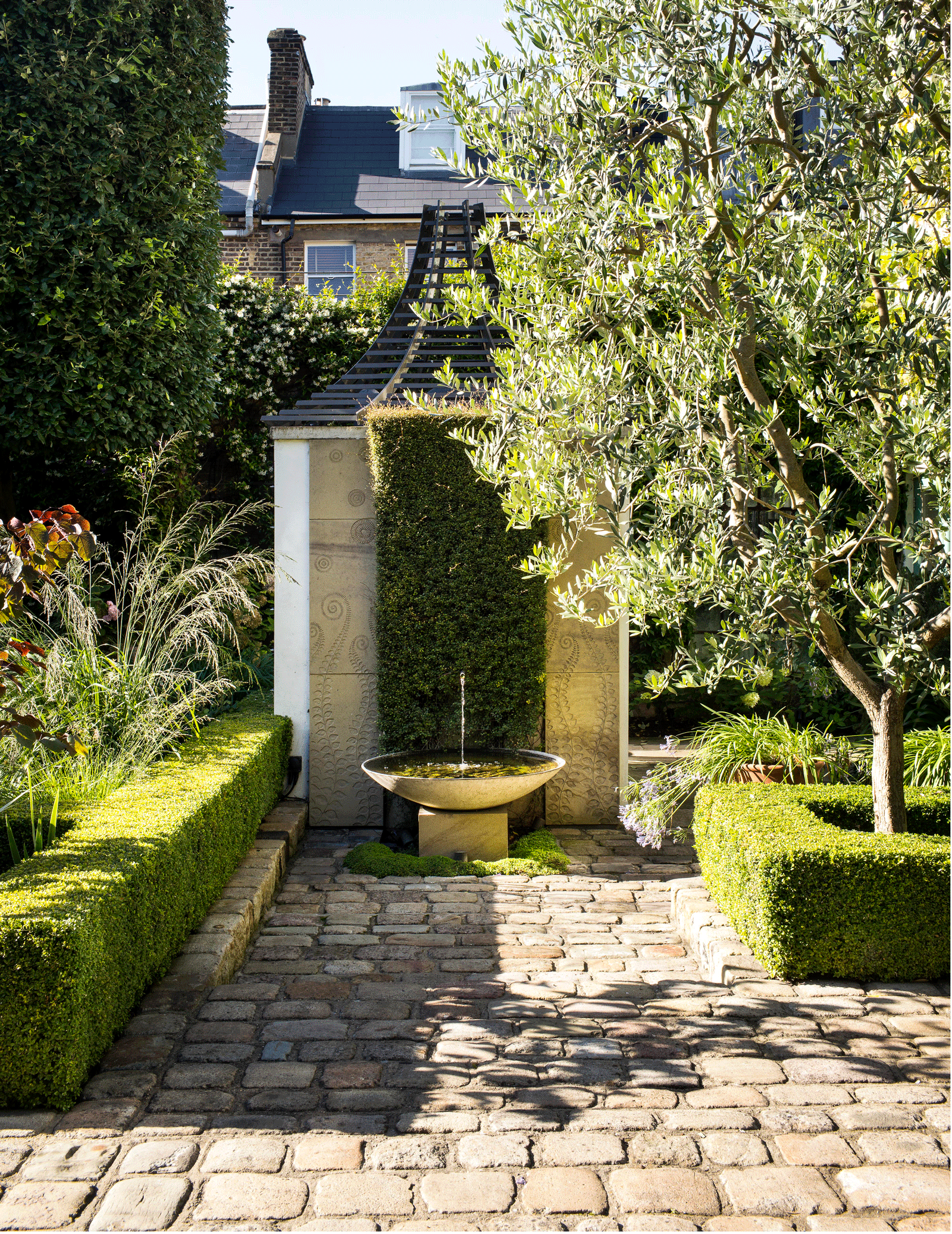
Did you know that Feng Shui isn't just for inside your home? Backyard Feng Shui will ensure that the natural elements flow and circulate in every corner of the outdoors, ensuring the home is always harmonious, peaceful, and filled with positivity. What's even better is that designing your garden around Feng Shui can make it look wonderfully landscaped as well. This is done using the five elements – earth, metal, water, wood, and fire – and balancing them well in space.
If you want to incorporate Feng Shui principles into your backyard ideas, then these important tips offered by the world's best Feng Shui masters are a must-read. Take a look and allow qi to flow freely in your outdoors.
10 ways to incorporate Feng Shui in the garden
All Feng Shui principles work hand in hand with good landscape design practices, so applying them will give your modern garden a pleasing look, even if you don't prescribe to Feng Shui in particular.
'The exterior factors surrounding our homes can impact us just as much as what's going on inside,' says Julia Sarasola, founder of Sarasola Interiors. 'An easy way to start planning your garden as per Feng Shui is to first assess the space you have and the placement of things.'
'Think about the flow, account for existing features, and imagine how you can create mindful and organic paths that invite the qi (or energy) to circulate the entire area,' Julia says. 'This can be done through the positioning of plants, how you prune and maintain existing vegetation, or even lying stone patios and walkways. You can also set up intentional seating areas, water features, or a herb garden in pockets that might otherwise feel abandoned.'
1. Introduce the five elements

'Largely, the Feng Shui principles that you use to design an indoor space can be applied to an outdoor space as well,' says Laura Morris, a Feng Shui practitioner, educator, and co-founder of Mindful Design Feng Shui School. 'The flow of qi is as important in your outdoor space as it is inside your home.'
'The five elements help guide your garden design, and represent types of qi that connect us to the rhythm of nature and the seasons,' says Laura. 'Wood stands for green trees and plants, fire can be represented by a firepit, earth through boulders and stone hardscaping, metal through round wind chimes or white flowering plants, and finally, water can be represented via a water feature or patio furniture.'
2. Add a meandering path

If you're wondering how to plan a modern garden, one big element of Feng Shui is to have a meandering path.
'Never have a straight path to the main door; ensure it is wavy to slow down the qi,' says Gary Hawkes, founder of Mr. Feng Shui. 'Imagine you’ve had a stressful day as well as a stressful journey home, and you need the end of your journey from the pavement/road to your door to be as long and gentle as possible. While walking on a curving road, you take a look at your beautifully-maintained flowers, shrubs, and trees. This way you eliminate most of the stress before you come through the door. It stops you from bringing bad energy in.'
'Break the linearity with curvy, zig-zag paths to create an opportunity to invite movement and flexibility in your garden,' says Feng Shui consultant Anjie Cho. 'Interestingly, as per Chinese mythology, ghosts are said to have very stiff bodies and they can only hop in a straight line. So traditionally Chinese gardens are created with meandering paths and bridges so that ghosts are not able to follow you.'
3. Consider a plant mix with different textures and sizes

If you're confused about how to choose plants for your garden as per Feng Shui, the answer is having a healthy mix of greens.
'Use hardscaping elements such as retaining walls, pathways, boulders, and patio stone to help guide the flow of qi throughout the outdoor space,' says Laura. 'Adding rounded and curved garden beds will also help to soften the qi.'
It is important for the qi to be able to flow in a space without being blocked. 'This goes for both the outdoor as well as the indoor,' Laura says. 'For plant material, mix it up with different textures, sizes, and groupings as this will help to create a more harmonious space. Try to avoid sharp corners, straight lines, and monotonous patterns.'
4. Add a wind chime

'When it comes to Feng Shui, 'feng' means wind, and 'shui' means water,' says Anjie. 'To bring in the wind element, choose elements that express movement and are not just static. These allow for a free flow of qi. You can express the wind element through wind chimes placed in certain areas of the garden. Make sure you love the sound of it before bringing one in.' It's also a great sound to introduce to train your ears away from noise such as neighbors or traffic, ideal for an urban garden.
'You can also express the wind element through windmills like pinwheels,' says Anjie. 'Consider botanicals like creeping willows or daffodils as well, as they gently move with the wind.'
5. Grow plants that evoke the five senses

Add to the terrace or courtyard garden aesthetic (and even functionality) with citrus, flowering, and evergreen plants. 'Citrus plants symbolize abundance and good fortune,' says Jane Langof, founder of Feng Shui Concepts. 'Roses represent love, happiness, and success. Peonies symbolize wealth, honor, and romance. Orchids represent fertility, abundance, and prosperity. Chrysanthemums represent longevity, joy, and happiness. Marigolds symbolize good luck and positive energy. Plants like jade, also known as the 'money plant,' are considered to attract prosperity to a household. Jade plants are ideal as they can hold onto water, which symbolizes wealth.'
'It is important to select plants that are suitable for the specific location of the garden, considering the amount of sunlight and water required,' adds Jane. 'Healthy, thriving plants symbolize abundance whereas sick and dying plants bring negative energy to a space.'
'When selecting plants, also consider the five senses and aim to create a pleasant scent with flowering plants like gardenias or fragrant leaves like lemon myrtle,' Jane continues. 'If your plants attract beautiful birds, bees, and butterflies, this will also enhance positive energy in your garden.'
6. Install a flowing water feature

For a sensory garden that is in line with Feng Shui principles, having a water feature is a must.
'A great way to promote the free flow of qi in the garden is by incorporating flowing water features like fountains or streams,' says Jane. 'Water is an important element in Feng Shui, and a water feature can help to circulate energy and promote a sense of tranquillity in the garden. A water feature must be kept clean and well-maintained, as stagnant or dirty water will bring negative energy to the garden. It is also critical to ensure that the water feature is placed correctly according to feng shui rules, as water amplifies energy regardless of whether it is positive or negative. A reputable feng shui master can help you with the correct placement in your garden.'
'Ensure the water feature is always well-managed and clean,' says Anjie. 'Also, if the water is not flowing or stagnant, it can hamper the flow of qi.'
7. Ensure the garden is clutter free

For the most peaceful, tranquil, and welcoming porch, backyard, or terrace garden, ensure that the space is forever clean, clutter-free, and well-maintained.
'It is important to avoid clutter and obstacles in the garden, as these can impede the flow of qi,' says Jane. 'Clutter can include excessive garden ornaments, broken objects, or unused furniture, while obstacles can be anything from overgrown plants to poorly placed features like walls or fences. To ensure free flow of qi, it is recommended to keep the garden clean and tidy, and to ensure that pathways are clear and easy to navigate.'
'If you're just starting, try to be practical with what you can manage,' says Julia. 'I would urge you to think of your outdoor space and garden as a true extension of your home,' says Julia. 'Piling up, stacking, and holding onto clutter outside the home can act as a literal barrier making it hard for the qi to enter your space. This can lead to feelings of malaise, as well as a lack of resources, opportunities, and abundance flowing in your direction.'
8. Decorate the garden with string lights and lanterns

Add to the modern garden lighting ideas by bringing in Feng Shui principles. Consider adding outdoor lighting to a water feature, to the seating, or even along the garden path.
'Lighting is a great way to enhance and illuminate a beautiful garden,' says Julia. 'This can be achieved by hanging string lights, uplighting trees, placing solar lights along pathways, adding lanterns and candles to lounge and seating areas, or via sparkling objects that dance and reflect light across your space.'
9. Avoid spikey plants

As per Feng Shui, there are a few plants to avoid growing in your garden, as these will not only hamper the aesthetics of the outdoors but also hamper the flow of energy.
'Plants with spiky or sharp leaves like yucca are best avoided in Feng Shui,' says Jane. 'These plants can be detrimental to the flow of positive energy.'
Another category of plant that is usually considered undesirable in Feng Shui is the bonsai. These miniature trees grown in containers, with stunted, unnatural growth can bring negative energy. They are not recommended for interiors either.
10. Balance the yin and yan

For a lovely, healthy, colorful, or tropical garden, there needs to be a balance in the way all the elements are placed, grown, or displayed.
'To achieve a free flow of qi in the garden, aim to balance the elements of yin and yang,' says Jane. 'Yin and yang refer to the balance of opposing elements found in nature. Yin represents the softer, more passive elements such as plants, and curves, while yang represents the harder, more active elements such as rocks, water features, and straight lines. A balance of yin and yang can be achieved by incorporating the hard lines of garden paths and features with the softness of planting. Using a mix of tall and short plants eg. trees and underplanting also creates a sense of balance in the garden.'







